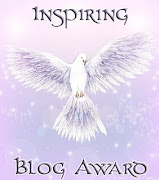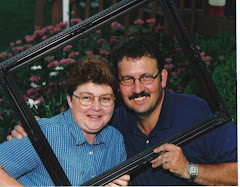Monday, April 28, 2014
Truth VS. Falsehood
Yesterday in the teen Sunday School class that I teach, we discussed the importance of being able to distinguish truth from error or falsehood. I consider this an important skill to possess in today's crazy world. There are so many messages that bombard us on a daily basis from a myriad of sources: TV, newspapers, magazines, books, internet posts, social media discussions, etc. It seems like everywhere we turn, we run into opinions, conflicting information, and reports that are confusing at best, and overwhelming at worst. I suspect it has ever been the case.
We all know that there has been a battle raging from the beginning that pits good against evil. There is indeed, opposition in all things. As such, we must constantly be on guard against deceptions and lies that are spread by the adversary. Since these confusing tidbits can come in so many forms, and even from those we trust, it is crucial to develop the ability to discern the truth for ourselves.
I learned at an early age that it was important to check things out before blindly going along with the crowd. I shared two experiences with my class yesterday that convinced me that I needed to develop the ability to recognize truth--that falsehoods can lead to trouble. The experiences are as follows:
When I was about seven years old, the elementary students in our area were transferred to a brand new school. We were very excited since it was a state of the art building, complete with a wonderful playground. One of the main attractions was a large, wooden teeter-totter. It quickly became all the rage to sit on one end of this teeter-totter while fellow students ran to the other end and pushed down, raising the opposite end high into the air. After giving a signal, everyone would let go and the other end would come down with a bang, giving the lucky rider an exciting rush. I was told that it was better than riding on the back seat of a school bus, which everyone knew was an awesome experience.
I watched this joyride take place several times, and everyone seemed to think it was a wondrous thing. Someone I considered a friend told me that I should try it. "You'll love it. It will be so fun." As I continued to watch, feeling a strange sense of unease, I decided this new-found trend wasn't for me. That was when my "friend" tried a different tactic. She called me a chicken, and not only once, but several times, effectively wounding my pride. Finally, I caved and made my way to the line of students who were eagerly waiting their turn. This was my chance to prove how brave I was. When the time came, I sat down on the end of the teeter-totter, and experienced an intense wave of unease. It just felt wrong, but before I could climb off, I was lifted high into the air by my fellow students.
When they released the teeter-totter, I plummeted down. Since I was smaller than most of the other students, I hit the ground hard, so hard that the two boards that were bolted together, came apart--just long enough to permit my small hands to slip between the boards. Without warning, I was trapped and in a lot of pain. As everyone stared, horrified at the blood that started to seep from my smashed fingers, the bell rang, and they all ran back inside the building, leaving me alone in my misery. Have you ever noticed that is how the adversary works? He entices us to go along with the crowd, to fall for the current trends, whether they are harmful or not. He doesn't care what happens to us, and he loves it when we are left in a mess, usually alone and in a lot of pain.
The truth was, the teeter-totter adventure was more dangerous than anyone thought, and I was in serious trouble. Fortunately, my teacher happened to be my aunt, and she noticed right away that I was missing. When she asked my classmates where I was, not one person revealed that I was trapped in the teeter-totter. Worried, she came looking for me, and discovered the mess I was in. After realizing she would need help to remove me from the boards of the teeter-totter, she ran back to the school and quickly located the janitor. Several minutes later, the teeter-totter was dismantled and I was freed from my wooden prison. I was lucky--the damage to my hands wasn't permanent. Miraculously, none of my fingers were broken--just cut and bruised.
Now after that experience, you would think I had learned my lesson about the danger of following the crowd, or listening to people I had assumed were my friends. It took one more painful experience for that concept to finally sink in. About a year later, the same good "friend" who had taunted me into trying the teeter-totter ride told me a beauty secret. My mother later let me know that it was probably said out of spite or jealousy. I had been born with lots of thick, dark hair, and possessed long, thick eyelashes. My "friend" possessed a pixie cut of her wispy blonde hair. One day, this friend informed me that if I pulled out all of my eyelashes, they would grow back in thicker than they were. She told me that our mothers wouldn't tell us this information since they didn't want us to be as pretty as they were. In my defense, (yes, I sponged this information) I remembered seeing my mother pluck around her eyes with tweezers. I thought that she had been pulling out her eyelashes. I should've gone home and asked her about it, and I would've learned that she had been shaping her eyebrows--that it had nothing to do with her eyelashes. Instead, I believed this friend of mine, and once again, despite the uneasy feeling I experienced, I followed her advice.
I'll never forget the horrified look on my mother's face that afternoon when I arrived home from school with bald eyes. She nearly passed out from shock. As you may have all guessed, what my friend told me was indeed a falsehood. My eyelashes were never the same. A few grew back in, but nothing like what I had possessed before.
This was a hard way to learn that not everything I would hear was truth. Until that point in time, I pretty much believed what I was told, since I trusted everyone. It's sad when that childhood trust is shattered. But I'm grateful for the lessons that I learned--that earlier pain prevented me from falling into future traps. From that point on, I carefully weighed what people told me, and also what I read. As I matured, I learned to trust in the impressions that came. Calm, peaceful feelings were to be trusted. Uneasy, confusing feelings were a warning. A warm sensation inside my heart helped me to distinguish truth from error.
I still follow this formula whenever I question something I've read or heard. It has saved me a lot of grief through the years, especially when popular opinion tries to force itself upon me. If it feels wrong--it is. It's truly as simple as that. Our Father knew we would live in a confusing time, and He has provided a way for us to travel through this mortal journey with inspired guidance, if we will only listen to that Still Small Voice.
Subscribe to:
Posts (Atom)




